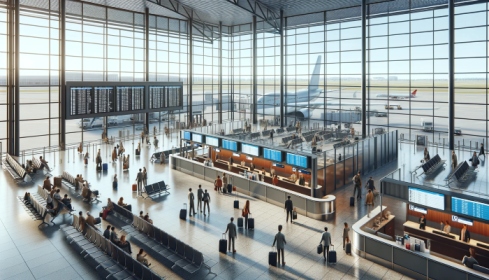Sunday, September 15, 2024 The global tourism landscape is undergoing a profound shift as younger generations become the primary travelers. Baby boomers, once the cornerstone of the travel industry, are slowly stepping back from extensive travel due to aging, while millennials and Gen Z are rapidly filling this gap. By 2030, millennials and Gen Z will represent 90% of the travel market.
These generations are digital natives who value technology integration in their travel experiences, from booking accommodations to sharing their trips on social media. Moreover, these younger travelers are more conscientious of environmental and societal impacts, showing a clear preference for companies that align with their values. This change is not just about sustainability but also about choosing brands that champion ethical practices, inclusivity, and transparency.

To remain competitive, travel operators will need to rethink their services, shifting towards experiences that resonate with the values of these new consumers. Technology is another force dramatically reshaping the tourism industry. Artificial intelligence (AI) and generative AI (GenAI) tools are poised to redefine how travelers plan and experience their journeys.
Virtual travel assistants, AI-powered chatbots, and predictive booking systems are already emerging in the market, offering travelers personalized itineraries tailored to their preferences, budgets, and even last-minute changes like cancellations or delays. However, adopting these technologies is no small task. Many tourism businesses are burdened by outdated legacy systems, which prevent them from fully embracing these innovations.
To keep pace with rapid technological advancements, industry players must invest in upgrading their infrastructures and training their workforce to design and implement AI-driven services. Those that can adapt quickly will thrive, while those that cannot risk falling behind in a hyper-competitive market. One of the most pressing challenges facing tourism professionals is the climate crisis.
Tourism contributes significantly to global carbon emissions, particularly through air travel, which has drawn increasing scrutiny from governments and consumers alike. As awareness grows about the environmental toll of tourism, more travelers are opting for low-emission alternatives, such as eco-friendly hotels and sustainable transportation options. Governments are also introducing stricter regulations to curb the environmental impact of travel.
For example, France recently passed legislation limiting short-haul domestic flights where alternative train travel is available. Similar measures are expected to be adopted by other countries, putting pressure on the tourism sector to innovate and reduce its carbon footprint. In addition to regulatory challenges, climate change is directly affecting travel destinations.
Popular tourist spots, such as Caribbean islands and ski resorts, are increasingly vulnerable to extreme weather events, including hurricanes, wildfires, and heatwaves. Tourism businesses must not only respond to consumer demand for sustainability but also safeguard their infrastructure and offerings against the growing threat of climate-related disruptions. As the industry continues to evolve, tourism professionals will need to adopt a proactive approach to address these challenges.
Whether it’s redesigning travel experiences for younger generations, embracing technological innovation, or developing strategies to mitigate the effects of climate change, those working in the tourism sector must stay ahead of the curve to remain relevant and competitive. The next decade will be transformative for tourism, requiring businesses to strike a balance between modernization and sustainability. For professionals in the sector, this means navigating a future where change is the only constant, and adaptability will be key to long-term success.
.



















